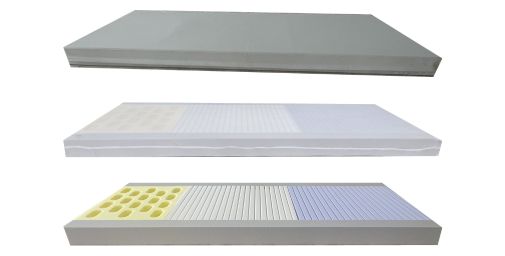Coconut Fiber Foam Innovations for Sustainable and Eco-Friendly Products
Exploring Coconut Fiber Foam A Sustainable Alternative for Modern Living
In recent years, the world has become increasingly aware of the need for sustainable materials in our daily lives. Among the various natural products making waves in the eco-friendly market, coconut fiber foam stands out as a versatile and innovative solution. Derived from the husks of coconuts, coconut fiber foam, also known as coir foam, is not only an environmentally friendly alternative but also possesses a range of properties that make it an ideal option in various applications.
What is Coconut Fiber Foam?
Coconut fiber foam is made from the fibrous husk of coconuts, which is typically a by-product of coconut processing. This natural material undergoes a process wherein the fibers are treated and transformed into a lightweight, spongy foam. The manufacturing process is relatively sustainable, as it utilizes waste materials that would otherwise contribute to environmental pollution. The result is a product that is biodegradable, renewable, and free from harmful chemicals, making it a more appealing option compared to conventional foams derived from petroleum.
Key Properties of Coconut Fiber Foam
1. Natural Absorbency One of the standout features of coconut fiber foam is its excellent absorbent capability. The unique structure of the fibers allows them to trap moisture effectively, making this material suitable for applications in gardening and agriculture. It can retain water, promote aeration in soil, and support healthy plant growth while reducing the need for synthetic soil amendments.
2. Shock Absorption Coconut fiber foam excels in shock absorption, making it an ideal material for various cushioning applications. From packaging to mattress manufacturing, its shock-absorbing capabilities ensure that delicate items remain protected during transportation and enhance the comfort of sleep surfaces.
3. Thermal Insulation The natural insulating properties of coconut fiber foam can be leveraged in construction and interior design. With growing concerns about energy efficiency in buildings, materials that provide thermal insulation are highly valued. Coconut fiber foam can help regulate indoor temperatures, lowering heating and cooling costs while minimizing the carbon footprint of homes and offices.
coconut fiber foam

4. Pest Resistance Unlike traditional organic materials, coconut fiber foam is naturally resistant to pests and molds, making it a durable choice in various environments. This characteristic is particularly advantageous in agriculture and gardening, where it reduces the reliance on chemical pesticides and promotes a healthier ecosystem.
Applications of Coconut Fiber Foam
The versatility of coconut fiber foam has led to its adoption in numerous sectors. In the realm of gardening, it is often used as a growing medium, promoting healthy root development and improving drainage. In the construction industry, it is increasingly being recognized as a sustainable insulating material that can compete with synthetic options.
Additionally, the furniture industry is beginning to embrace coconut fiber foam for its cushioning properties, leading to the manufacture of eco-friendly mattresses and seating solutions. As consumers become more environmentally conscious, the demand for such products is likely to grow.
The Future of Coconut Fiber Foam
As we navigate the challenges posed by climate change and dwindling natural resources, innovative materials like coconut fiber foam offer hope for a more sustainable future. Its renewable nature and multifunctional properties make it a strong candidate for replacing traditional materials across various industries.
However, to fully realize the potential of coconut fiber foam, further research and development are essential. By investing in advancements in processing technology and exploring new applications, we can enhance the usability of this remarkable material.
In conclusion, coconut fiber foam is more than just an alternative material—it represents a shift towards sustainable practices that prioritize environmental health. As we continue to explore and promote such eco-friendly options, we pave the way for a greener lifestyle that benefits not only consumers but also the planet as a whole. With greater awareness and innovation, the future looks bright for coconut fiber foam, leading us toward a more sustainable and responsible way of living.
-
Mattresses Designed for Back Pain ReliefNewsAug.08,2025
-
Innovative Wave Mattresses for Ultimate ComfortNewsAug.08,2025
-
High-Quality Mattresses for Hospital BedsNewsAug.08,2025
-
High-Quality Mattresses for Every NeedNewsAug.08,2025
-
Healthcare Foam Mattress: Sleep Better, Heal FasterNewsAug.08,2025
-
Cube Mattress for Daily ComfortNewsAug.08,2025
-
How Hospital Mattress Choices Directly Impact Patient Comfort and CareNewsAug.05,2025

